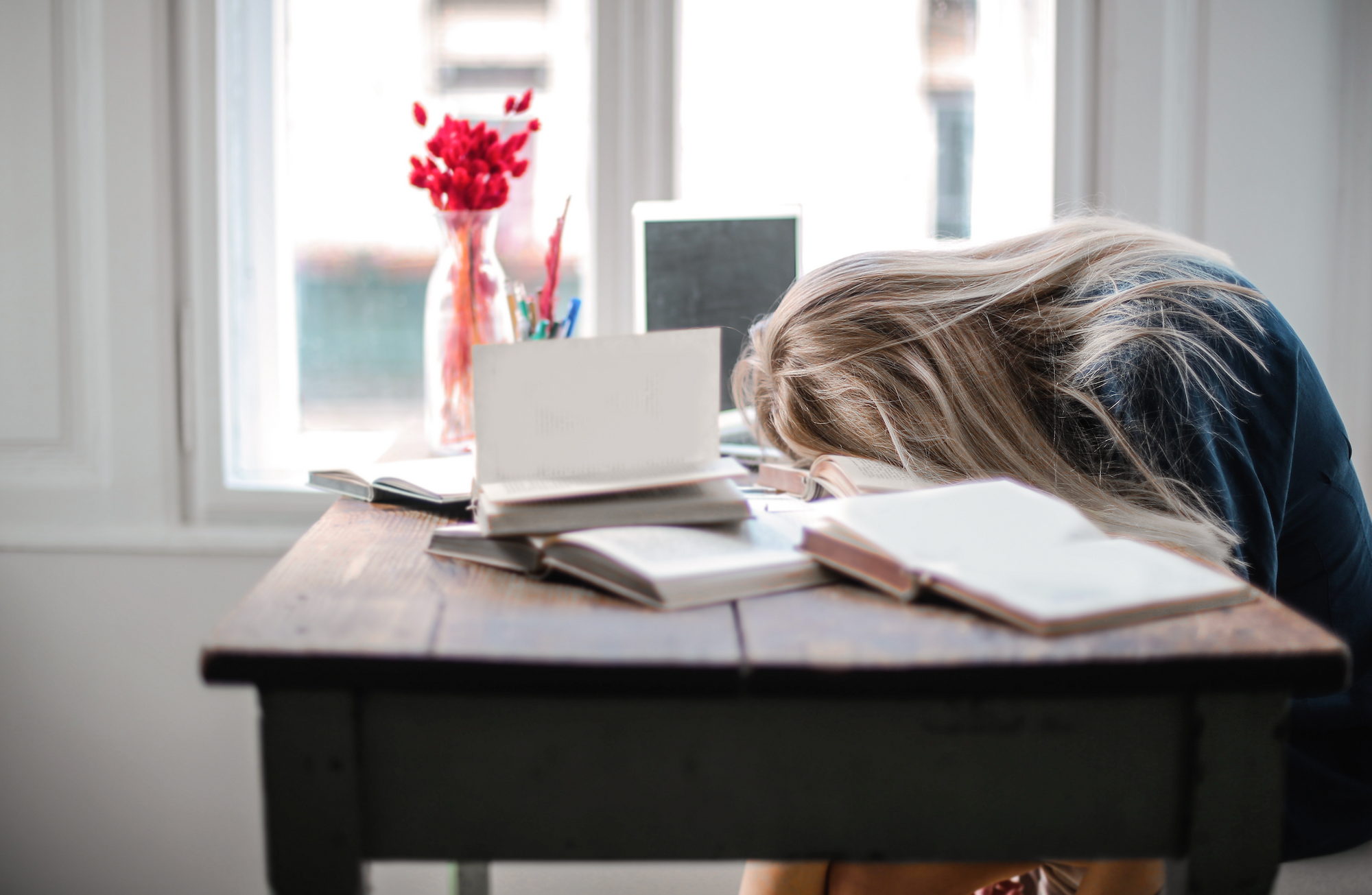5 Common Bedtime Habits Destroying Your Sleep
Getting your daily zzzs is as important as getting your vitamins. Your body needs, on average, 7 to 9 hours of sleep per night if you're over the age of 18. (1) Kids and teenagers need even more time resting. On average, we spend a third of our lifetime snuggled up in bed, except for some people getting enough sleep is a daily battle. When you don't get enough rest, it can make everyday activities unbearable, cause weight gain, and increase depression and anxiety. But are some of your daily habits destroying your sleep?
1| Too much screen time
You probably don't remember, but there was a time a smartphone wasn't glued to our hands 24/7. In seconds, we can scroll social media, read the news, and respond to an email. In the digital world, everyone expects an immediate response. Yet, looking at your phone before bed causes your brain to wake-up.
The light on your screen is disrupting our circadian rhythm, and scientists know why. (2) The Salk Institute discovered that exposure to artificial light wakes up our brain long after we turn off our phone. Light-sensitive cells in our eyes respond to light long after the phone is off.
2| Binging before bed
You probably heard this before— don't eat late at night. Well, it may not be the late hour that causes insomnia; it may be what you choose to eat. If you gorge on potato chips and ice cream right before slipping in between the sheets, your digestive system may have a hard time breaking down the massive amounts of fat and sugar.
While going to bed hungry can mess with your sleep cycle, you can make healthier food choices. Pick something light, such as greek yogurt or fruit. Some foods have sleep-inducing qualities like tart cherries and almonds. Cherries have high concentrations of melatonin, the sleep chemical. (3)
3| Making caffeine your best friend
Starting with your morning cup of joe or green tea have one thing in common— caffeine. While getting your daily dose of caffeine may be the only way to start the day, drinking caffeinated beverages even hours before bedtime can cause sleep disruptions. Caffeine is a stimulant, and research suggests it can help performance, but too much caffeine causes your brain to remain awake. (4) Instead of caffeine infused concoctions, try chamomile tea or lavender tea infused with valerian root.

4| Using alcohol to fall asleep
Reviews of 27 different studies showed that alcohol consumption before bed didn't improve sleep quality. (5) While alcohol may assist you to fall asleep faster, it messes with your REM sleep. REM sleep happens in the second half of the sleep cycle and is the part of the sequence responsible for making you feel rested.
When you drink, you're disrupting the REM cycle. When you wake up, you're less rested, and relying on alcohol to fall asleep can cause an alcohol dependency. Alcohol consumption can also cause breathing difficulties such as sleep apnea, weight gain, and hangovers. Indulging in an occasional nightcap is fine, but relying on a glass of wine or two before bed can lead to a sleep deficit and addiction.
5| Hitting the treadmill before bed
Now, no one would say exercise is a bad thing; most people want to hit the gym more. But, exercising intensely before bed may interfere with your sleep cycle. Research shows that high-intensity exercise right before bed can keep you from falling asleep.
In studies, where men and women exercised more than 225 minutes per week in the evening had trouble falling asleep. (6) It seems that the amount of time and type of exercise mattered. For those who stretched or did a low-impact workout in the evening, the sleep disruption was less or non-existent. If you exercise more than 225 hours per week in the morning, sleep disruption doesn't happen. In a nutshell, get your exercise but burn calories in the morning, rather than right before bed.
When you have sleep problems, it may feel like a losing battle. However, small changes can make the difference between a good night’s sleep and tossing and turning. Remember to switch off your phone, avoid shots of espresso, and feel the burn in the morning. Then you can say goodnight to the bedtime habits destroying your sleep.
https://www.sleepfoundation.org/articles/how-much-sleep-do-we-really-need
https://www.sciencedaily.com/releases/2018/11/181127111044.htm
https://www.healthline.com/nutrition/9-foods-to-help-you-sleep#section4
https://www.ncbi.nlm.nih.gov/pmc/articles/PMC6292246/
https://www.webmd.com/sleep-disorders/news/20130118/alcohol-sleep#1
https://www.ncbi.nlm.nih.gov/pubmed?term=(McTiernan%2C%20Anne%5BAuthor%5D)%20AND%20%22Sleep%22%5BJournal%5D



